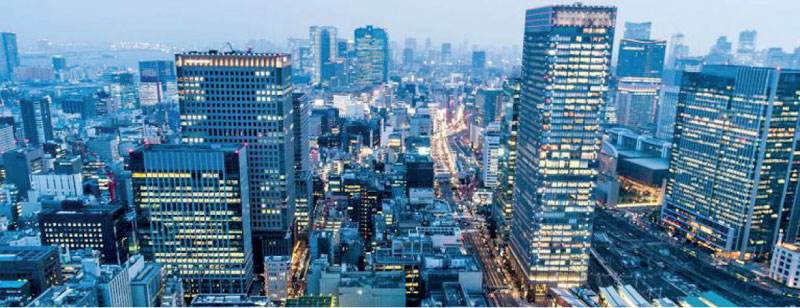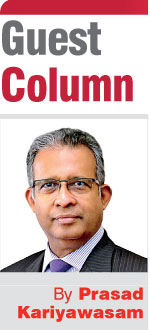Wednesday Feb 18, 2026
Wednesday Feb 18, 2026
Friday, 26 May 2023 02:14 - - {{hitsCtrl.values.hits}}

It is evident that the most important keystone for a sustainable economic future in the Indo-Pacific will be an inclusive, transparent, efficient, rule-based system that would stand the test of time
Following are remarks delivered on the theme – ‘Roadmap for an economically sustainable future in the Indo-Pacific’ at the 6th Indian Ocean Conference – 2023 held in Dhaka, Bangladesh, on 12-13 May. This Conference (IOC 2023) was organised by the India Foundation in partnership with the Ministry of External Affairs of India, the Ministry of Foreign Affairs of Bangladesh, and the S. Rajaratnam School of International Studies, Singapore.
 It is well known that the Indo-Pacific Region has become the epicentre of economic growth in the 21st Century. With over 60% of the world population, coupled with quality human resources and the world’s most active and strategically important sea lanes, the Indo-Pacific is expected to become the primary contributor to global growth in the next 30 years.
It is well known that the Indo-Pacific Region has become the epicentre of economic growth in the 21st Century. With over 60% of the world population, coupled with quality human resources and the world’s most active and strategically important sea lanes, the Indo-Pacific is expected to become the primary contributor to global growth in the next 30 years.
The Indian Ocean Region (IOR) is the keystone of this phenomenon with a potential to rise again similar to its glorious days in the last millennium.
But despite this economic success, the Indo-Pacific has today become a geopolitical strategic cauldron, casting doubts about an economically strong sustainable future. The inexorable rise of Asian major powers and potential of small but strategically important nations add to the strategic complexity of both the Indo-Pacific and the Indian Ocean Region (IOR). And, as all major global powers enjoy substantial or nominal presence in the Indo-Pacific, its economic success is circumscribed by modern era competition for geopolitical space that seek to promote and secure economic and social orders favoured by those powers of the Indo-Pacific with extra-regional heft.
It is in this context that we have to address the dire need for an economically sustainable future in the Indo-Pacific. Without doubt, the populace in the Indo-Pacific would welcome a prosperous future based on economic resilience and peace. But achieving that objective is the challenge of the century.
Since the idea of economic sustainability is multi-dimensional, transcending economic, environmental and social equity concerns, it has generated several interpretations on what model would work best for each nation. At the same time, asymmetries remain within the Indo-Pacific region among developed and developing nations in various stages of development, making it difficult to define achievable benchmarks of economic sustainability for each nation. For instance, much needed transformation from a linear to a circular Blue/Green economy is an insurmountable challenge for some developing nations. They need external support and assistance for achieving economic sustainability in the modern world which requires different inputs than the developed nations.
Nevertheless, for achieving an economically sustainable future, all countries at a basic level require, among other attributes: innovative ideas; inclusive thinking; eschewing prejudice; respect for social and communal realities; ability for harnessing modern ever-evolving technologies; and respecting internationally agreed values and ethics that evolved through the UN system which are today an integral part of international law.
Meanwhile, recognising the importance of the Indo-Pacific for the world’s economic well-being in the 21st Century, several international initiatives have been launched. Among these, the US-led Indo-Pacific Economic Framework for Prosperity (IPEF) stands out. It is an open-ended framework agreed initially by a dozen Indo-Pacific nations that includes India from the South Asian region. It is an important first step towards an economically sustainable future of the region, provided that the IPEF becomes progressively inclusive.
It is evident that the most important keystone for a sustainable economic future in the Indo-Pacific will be an inclusive, transparent, efficient, rule-based system that would stand the test of time. Such a system must be evolved and led by major economies but it must provide special and differential treatment for vulnerable nations and even for communities within larger nations. This is a tough task, but can be achieved with wise leadership that has the capacity for public mobilisation.
COVID-19 showed the world the essential need for working together for the survival of human beings. If this same spirit can be extended for humanity to prosper, then the road to a sustainable economic future can become a much more achievable objective.
Key areas every nation and society must focus on
In this context, let’s look at some key areas that every nation and society must focus on, for achieving a sustainable economic future for the region.
First and foremost, trade and investment must be promoted as a multi-dimensional two-way process that ensures balanced and mutually beneficial trading and investment arrangements. And these measures must be underpinned by efficiently connected economies through free trade or trade facilitating bilateral and multilateral networks. Such initiatives must be complemented with transparent cross-border data flows that can promote mutually beneficial e-commerce and prevent unethical use of AI, and violation of online privacy. They must ensure fair competition with transparent and high-quality infrastructure that would prevent money-laundering, tax evasion, and crony manipulation of cross-border trade. For this purpose, digitised systems and transparent connectivity are essential measures. And today, such systems are within the reach of each nation if there is a political will.
Education systems in countries that lag behind in the application of modern technology for this purpose must be supported through mutually beneficial expertise sharing and technology transfer measures.
At the same time, for securing sustainability, all the countries in our region must become leaders in addressing climate and environmental crises without becoming passive followers. Clean energy and decarbonisation must come to the front burner in economic decision-making with a view to innovatively creating new but practical paradigms in economy and jobs creation. For this purpose, IOR nations are very well placed to use their ancient wisdom that is available in plenty in the region.
In recent years, supply chain disruptions have become a major concern militating against integration of economies for common benefit. We have to recognise that efficient supply chains can lower the cost of goods for consumers provided they are built upon fair and equitable trading systems that provide equal opportunities for smaller economies to have a stake in the chain. Eschewing supply chains in favour of yesteryear economic self-sufficient models, except for food security needs, may run counter to efforts to have a sustainable, economically progressive future.
Therefore, how to prevent such disruptions in supply chains, and measures for supporting vulnerable small nations becoming victims during a crisis, must receive greater attention and further discussion across political and economic fault lines.
At macro level, it is apparent that economic connectivity to reach sustainably prosperous levels, relations across countries involved must be stable and predictable, respecting international law and devoid of predatory practices. There can be immense mutual benefits if countries choose friendship and cooperation, shunning adversarial competition and conflict. If nations in the Indo-Pacific can put in place a transparent, rules-based architecture that secures peace and stability in the region, then that can be the harbinger of sustainable economic progress in the region.
However, in this volatile era of strategic dissonance across the Indo-Pacific, the choices are quite complex. While it seems legitimate to secure economic and physical security of nations through partnerships against manifestations of hegemony or commercial domination, it is also legitimate for people in the region to aspire for a sustainable economic future.
Therefore, promoting a Free and Open Indo-Pacific with active and unimpeded sea lanes and ports, among other measures, has the potential to lay the ground work for an interconnected, secure, resilient and prosperous region. This will serve the best interest of the populace of the IOR, and can lead towards achieving strategic harmony among nations in the region, thus consolidating an economically sustainable future for the Indo-Pacific. And this would certainly usher in a peaceful, prosperous and resilient future for the Indo-Asian-Pacific Region.
(The writer, a former Foreign Secretary, has also served as Sri Lanka’s Ambassador to the USA, High Commissioner to India, and Ambassador and Permanent Representative to the United Nations in Geneva and in New York.)